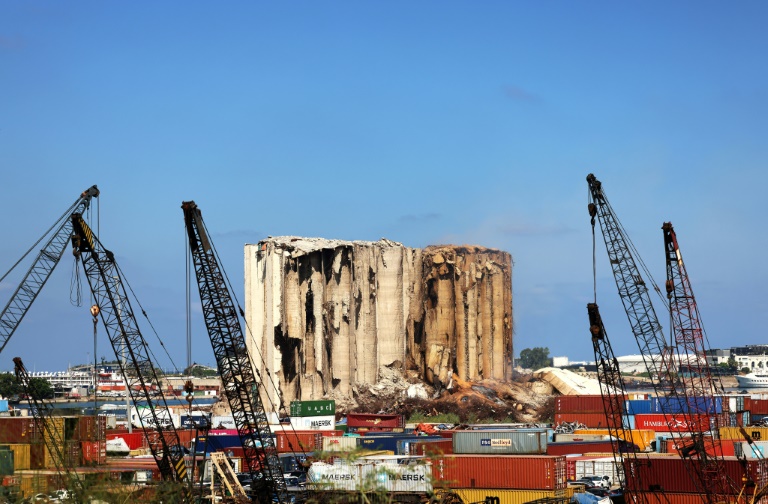Beirut blast probe resumes after 13 months

The August 4, 2020 blast at the Beirut port was one of history’s largest non-nuclear explosions
Beirut – The Lebanese judge investigating the deadly 2020 Beirut port blast has resumed his work, a judicial official said Monday, after a 13-month suspension due to political pressure.
“Judge Tarek Bitar has decided to resume his investigation,” the official told AFP.
The probe into the cause of the blast, one of history’s largest non-nuclear explosions, had been stalled since December 2021 as a series of complaints against Bitar obstructed his work.
The official said Monday Bitar has ordered the release of five detained suspects and pressed charges against eight others.
Among those charged were Abbas Ibrahim, General Security director general, and State Security agency chief Tony Saliba.
Embattled judge Bitar had previously sought permission to question both officials.
Lebanon’s former head of customs, Shafiq Merhi, was one of those released.
Despite the surprise decision, Bitar continues to face immense pressure from politicians, who had filed dozens of complaints against him that forced him to halt his probe.
They include several ex-ministers, two of whom were hit with arrest warrants after they failed to show up for questioning.
“Bitar conducted a legal study that led him to decide to resume his investigations despite the complaints filed against him,” the official said.
Lebanon’s powerful Shiite group Hezbollah had repeatedly demanded he step down on grounds of political bias.
No state official has yet been held accountable over the blast, while foreign countries and international bodies had called for the probe to resume.
– ‘Political interference’ –
Bitar met last week with two French judges to discuss his investigation, a judicial source told AFP at the time.
State institutions have been reluctant to cooperate with the probe, which began the same month as the explosion.
In February 2021, Bitar’s predecessor as lead judge was removed from the case by a court which had questioned his impartiality because his home had been damaged in the blast.
Parliament has refused to lift immunity granted to lawmakers, and Bitar’s requests to interrogate top security officials have been turned down.
The interior ministry has also failed to execute arrest warrants issued by Bitar, further undermining his quest for accountability.
The August 4, 2020 explosion at the Beirut port killed more than 200 people and destroyed swathes of the capital.
Authorities said tonnes of ammonium nitrate fertiliser haphazardly stocked in a port warehouse since 2014 had caught fire, causing the explosion.
The victims’ families have been holding monthly vigils for more than two years, seeking justice and accountability.
William Noun, the brother of one of the victims and a vocal advocate for the families, was briefly arrested earlier in January after he had threatened to “blow up the palace of justice” to protest moves to replace Bitar.
Some in Lebanon have also voiced support for an international probe into the tragedy.
In a joint letter sent to the United Nations Human Rights Council in 2021, rights groups and relatives of blast victims had said “flagrant political interference, immunity for high-level political officials, and lack of respect for fair trial” have rendered the probe incapable of delivering justice.
